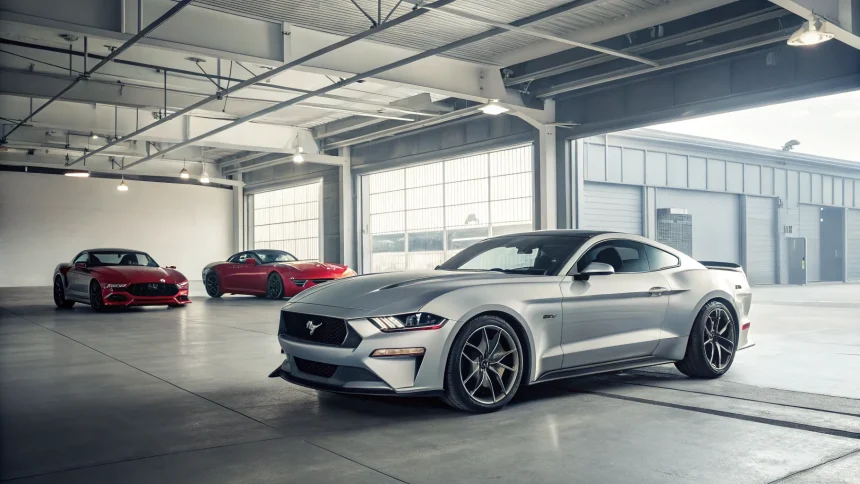Automotive publications have expressed enthusiasm for Ford Mustang design concepts created by international students, but not everyone shares this excitement. Critics argue these concepts fail to capture the essence of America’s iconic pony car, raising questions about Ford’s direction for the beloved muscle car brand.
The controversy centers around Ford’s decision to not only showcase these student-designed concepts but also commit to building full-scale models of each design. This move has sparked concern among Mustang purists and automotive enthusiasts who worry about potential dilution of the Mustang’s heritage.
International Design Contest Sparks Debate
Ford organized a design competition in partnership with China’s College for Creative Studies, inviting international students to reimagine the Mustang. While intended to bring fresh perspectives to the iconic American vehicle, the results have been met with mixed reactions.
Critics have been particularly harsh, with some describing the concepts as “dog water” – slang for something of extremely poor quality. The primary criticism focuses on the students’ apparent lack of understanding regarding the Mustang’s cultural significance and design heritage in American automotive history.
“These students probably have no idea what America’s pony car is really all about,” noted one observer, highlighting the disconnect between international design perspectives and the Mustang’s deep-rooted American identity.
Ford’s Commitment Raises Questions
What has intensified the controversy is Ford’s decision to move forward with these concepts beyond mere drawings. The automaker plans to construct full-scale models of each design, signaling a potential investment in these new directions for the Mustang aesthetic.
This commitment has raised eyebrows within the automotive community, especially among Mustang enthusiasts who value the vehicle’s traditional muscular styling and performance-oriented design language that has evolved over nearly six decades.
The situation reportedly became more complicated when Ford faced an unintended comparison with Porsche, though details of this comparison were not fully elaborated. This apparent embarrassment has added fuel to critics’ concerns about Ford’s stewardship of the Mustang brand.
Cultural Disconnect in Automotive Design
The controversy highlights the challenges automakers face when globalizing iconic national brands. The Mustang, perhaps more than any other Ford vehicle, represents American automotive culture and has maintained a consistent design language despite numerous evolutions since its 1964 debut.
International design perspectives can offer innovation, but critics argue that understanding the cultural and historical context of vehicles like the Mustang is essential to successful redesigns. The student concepts apparently missed key elements that Mustang enthusiasts consider fundamental to the vehicle’s identity.
Ford’s willingness to showcase designs that deviate significantly from the Mustang’s established aesthetic has led some to question whether the company fully appreciates the brand equity built over generations.
As the automotive industry continues to globalize and electric vehicles reshape design constraints, the challenge of maintaining brand heritage while embracing innovation becomes increasingly complex. For iconic vehicles with strong cultural associations like the Mustang, this balance appears particularly difficult to achieve.
Whether these student concepts will influence future production Mustangs remains to be seen, but the controversy demonstrates the passionate following the pony car maintains and the risks associated with reimagining automotive icons.









